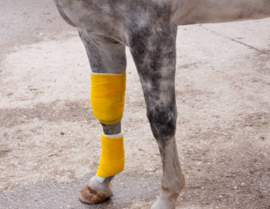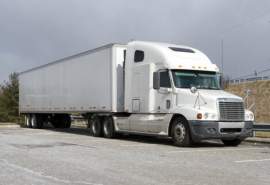
A Guide to Seat Belt Laws in the United States

There are safety belt laws in all states in the United States with the exception of New Hampshire. In certain states, these seat belt laws may only cover front-seat occupants, but seat belt laws in 26 states as well as the District of Columbia cover both front and rear-seat occupants.
Seat belt laws are separated into two distinct categories Seat Belt Laws: primary and secondary seat belt laws. Primary seat belt laws allow police offers and other law enforcement officers to give a driver a ticket solely due to a seat belt law violation, without having any other traffic offense occur. Secondary seat belt laws only allow police officers and law enforcement officers to issue a traffic ticket for not following seat belt laws only if there is another traffic infraction that is citable.
Primary seat belt laws are used in 32 states as well as the American Samoa, District of Columbia, Guam, Puerto Rick, the Virgin Islands, and the Mariana Islands. 17 states currently have secondary seat belt laws. Many of these laws are applicable to either younger drivers or young passengers.
Seat belt laws can have strong implications in civil suits. Currently, 16 states allow the seat belt defense, which can result in reduced damages collected by the victim of a crash if the individual failed to properly use his or her seat belt. These states include Arizona, Alaska, Colorado, California, Florida, Iowa, Missouri, Michigan, Nebraska, New York, North Dakota, New Jersey, Oregon, Ohio, West Virginia and finally Wisconsin. This reduction only allowed for any injuries that could have been prevented by wearing a seat belt. In certain states, the reduction cannot exceed set percentages of the total damages.
Child Seat Belt Laws
Unlike adult seat belt laws, which may or may not exist on a state to state basis, every single state as well as the District of Columbia has child seat belt laws and restraint laws. Child seat belts laws require all children to travel in vehicles with approved child restraint devices. Some child seat belt laws may allow or require older children to just use adult seat belts. The ages at which seat belts can be rather than child restraints varies between states. Young children are usually covered by the state’s child restraint laws, while safety belt laws will cover adults and older children.
Because the enforcement and fines of seat belt laws differ from child restraint laws, you must know which law is being broken when a child is not properly restrained. Most child restraint laws are mainly primary seat belt laws, meaning the police can stop a vehicle solely due to child restraint violations. Other states, such as Nebraska and Ohio, place some children under the secondary enforcement law, meaning that police need to have an additional reason to stop the vehicle.
Ideally, all children and infants should be covered by child restraint laws or safety belt laws or both. But the differences in the way these laws in various states are phrased can result in many occupants, particularly children, not being by either law. Because of this, lawmakers have eliminated many of these gaps by amending the seat belt laws and child restraint.
Seat Belt Laws by State
Because laws vary by state, it is important to know the specific seat belt laws and fines for your specific state. The following quickly describes the type whether the state has primary or secondary seat belt laws, what ages they are applicable to, and what fines exist for failure to comply.
• Alabama Seat Belt Laws: Primary enforcement, applicable for ages 15 and older in front seats, the maximum fine for a first time offense is $25.
• Alaska Seat Belt Laws: Primary enforcement, applicable for ages 16 and older in all seats, the maximum fine for a first time offense is $15 ($25 actual).
• Arizona Seat Belt Laws: Secondary enforcement, applicable for ages 5 and older in front seats and ages 5-15 in all seats, the maximum fine for a first time offense is $10 ($37.20 actual).
• Arkansas Seat Belt Laws: Primary enforcement, applicable for ages 15 and older in front seats, the maximum fine for a first time offense is $25.
• California Seat Belt Laws: Primary enforcement, applicable for ages 16 and older in all seats, the maximum fine for a first time offense is $20 ($88 actual) $50 second offense ($190 actual).
• Colorado Seat Belt Laws: Secondary enforcement 4, applicable for all front seats and everyone under the age of 16 all seats, the maximum fine for a first time offense is $71.
• Connecticut Seat Belt Laws: Primary enforcement, applicable for ages 7 and older in front seats, the maximum fine for a first time offense is $92.
• Delaware Seat Belt Laws: Primary enforcement, applicable for ages 16 and older in all seats, the maximum fine for a first time offense is $25.
• Florida Seat Belt Laws: Primary enforcement, applicable for 6 and older years in front seat and 6 through 17 years in all seats, the maximum fine for a first time offense is $30.
• Georgia Seat Belt Laws: Primary enforcement, applicable for ages 6-17 in all seats and ages 18 and older in front seats, the maximum fine for a first time offense is $15.
• Hawaii Seat Belt Laws: Primary enforcement, applicable for ages 8-17 in all seats and ages 18 and older in front seat, the maximum fine for a first time offense is $45 ($92 actual).
• Idaho Seat Belt Laws: Secondary enforcement, applicable for ages 7 and older in all seats, the maximum fine for a first time offense is $10 ($51.50 actual).
• Illinois Seat Belt Laws: Primary enforcement, applicable for ages 16 and older in all seats, the maximum fine for a first time offense is $25 ($60 actual or $95 if selecting traffic school).
• Indiana Seat Belt Laws: Primary enforcement, applicable for ages 16 and older in all seats, the maximum fine for a first time offense is $25.
• Iowa Seat Belt Laws: Primary enforcement, applicable for ages 11 and older in front seats, the maximum fine for a first time offense is $50 ($127.50 actual).
• Kansas Seat Belt Laws: Primary enforcement, applicable for ages 14-17 in all seats and ages 18 and older in front seat, the maximum fine for a first time offense is $30.
• Kentucky Seat Belt Laws: Primary enforcement, applicable for those more than 40 inches tall in all seats, the maximum fine for a first time offense is $25.
• Louisiana Seat Belt Laws: Primary enforcement, applicable for ages 13 and older in front seats, the maximum fine for a first time offense is $25.
• Maine Seat Belt Laws: Primary enforcement, applicable for ages 18 and older in all seats, the maximum fine for a first time offense is $70 for the 1st offence, $160 for second offense, and up to $310 for the 3rd offense
• Maryland Seat Belt Laws: Primary enforcement, applicable for ages 16 and older in front seats, the maximum fine for a first time offense is $25.
• Massachusetts Seat Belt Laws: Secondary enforcement, applicable for ages 12 and older in all seats, the maximum fine for a first time offense is $25.
• Michigan Seat Belt Laws: Primary enforcement, applicable for ages 4 and older in front seats and ages 4-15 in all seats, the maximum fine for a first time offense is $25.
• Minnesota Seat Belt Laws: Primary enforcement, applicable for anyone who is not covered by child passenger safety law in all seats, the maximum fine for a first time offense is $25.
• Mississippi Seat Belt Laws: Primary enforcement, applicable for ages 4-7 in all seats and ages 8 and older in front seat, the maximum fine for a first time offense is $25.
• Missouri Seat Belt Laws: Secondary enforcement, applicable for ages 16 and older in front seats, the maximum fine for a first time offense is $10.
• Montana Seat Belt Laws: Secondary enforcement, applicable for ages 6 and older in all seats, the maximum fine for a first time offense is $20.
• Nebraska Seat Belt Laws: Secondary enforcement, applicable for ages 18 and older in all seats, the maximum fine for a first time offense is $25.
• Nevada Seat Belt Laws: Secondary enforcement, applicable for ages 6 and older in all seats, the maximum fine for a first time offense is $25.
• New Hampshire Seat Belt Laws: Primary for children only, applicable for ages 17 and under in all seats, the maximum fine for a first time offense is $50.
• New Jersey Seat Belt Laws: Primary enforcement, applicable for ages 18 and older in front seat and ages 8-17 in all seats, the maximum fine for a first time offense is $50 per person.
• New Mexico Seat Belt Laws: Primary enforcement, applicable for ages 18 and older in all seats, the maximum fine for a first time offense is $252.
• New York Seat Belt Laws: Primary enforcement, applicable for ages 16 and older in front seats, the maximum fine for a first time offense is $50 ($135 actual after surcharges).
• North Carolina Seat Belt Laws: Primary enforcement1, applicable for ages 16 and older in all seats, the maximum fine for a first time offense is $25 ($100 actual after taking into consideration court costs).
• North Dakota Seat Belt Laws: Secondary enforcement, applicable for ages 18 and older in front seats, the maximum fine for a first time offense is $20 (actual $100.50).
• Ohio Seat Belt Laws: Secondary enforcement, applicable for ages 15 and older in front seat and ages 4-14 in all seats, the maximum fine for a first time offense is $30.
• Oklahoma Seat Belt Laws: Primary enforcement, applicable for ages 13 and older in front seats, the maximum fine for a first time offense is $20.
• Oregon Seat Belt Laws: Primary enforcement, applicable for ages 16 and older in all seats, the maximum fine for a first time offense is $90.
• Pennsylvania Seat Belt Laws: Secondary enforcement, applicable for ages 8 and older in front seats, the maximum fine for a first time offense is $10.
• Rhode Island Seat Belt Laws: Primary enforcement, applicable for ages 13 and older in all seats, the maximum fine for a first time offense is $75.
• South Carolina Seat Belt Laws: Primary enforcement, applicable for ages 6 and older in all seats, the maximum fine for a first time offense is $25.
• South Dakota Seat Belt Laws: Secondary enforcement, applicable for ages 18 and older in front seats, the maximum fine for a first time offense is $20.
• Tennessee Seat Belt Laws: Primary enforcement, applicable for ages 16 and older in front seats, the maximum fine for a first time offense is $50.
• Texas Seat Belt Laws: Primary enforcement, applicable for ages 8 and older in all seats, the maximum fine for a first time offense is $200
• Utah Seat Belt Laws: Secondary enforcement, applicable for ages 16 and older in all seats, the maximum fine for a first time offense is $45.
• Vermont Seat Belt Laws: Secondary enforcement, applicable for ages 16 and older in all seats, the maximum fine for a first time offense is $25.
• Virginia Seat Belt Laws: Secondary enforcement 4, applicable for ages 18 and older in front seats, the maximum fine for a first time offense is $25
• Washington Seat Belt Laws: Primary enforcement, applicable for ages 16 and older in all seats, the maximum fine for a first time offense is $124.
• West Virginia Seat Belt Laws: Secondary enforcement, applicable for ages 8 and older in front seats and 8-17 in all seats, the maximum fine for a first time offense is $25.
• Wisconsin Seat Belt Laws: Primary enforcement, applicable for ages 8 and older in all seats, the maximum fine for a first time offense is $10.
• Wyoming Seat Belt Laws: Secondary enforcement, applicable for ages 9 and older in all seats, the maximum fine for a first time offense is $25
NEXT: Buying A Car



















